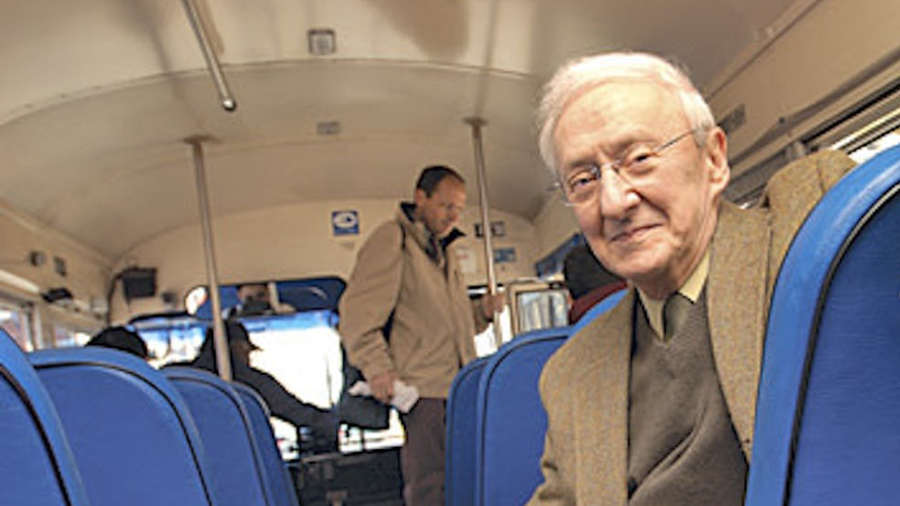Remembering Charles Radding
Charles M. Radding, a professor emeritus of genetics at Yale University, died Oct. 20 at age 90. He was a member of the American Society for Biochemistry and Molecular Biology for 40 years.
Born June 8, 1930, in Springfield, Massachusetts, Radding earned an MD from Harvard Medical School in 1956. He served a medical internship in Boston and a research fellowship at the National Institutes of Health before conducting postdoctoral research at Stanford University with Arthur Kornberg, who won the Nobel Prize in physiology or medicine in 1959, the year Radding joined his lab. Radding joined the faculty at the University of Michigan before moving to Yale in 1967.

In his lab, Radding characterized cellular proteins that mediate DNA recombination, focusing on the recA protein from E. coli. By purifying and studying proteins, he was able to reconstitute key steps of recombination in the lab. He and his colleague Matthew Meselson of Harvard formulated the articulation of a new general model of recombination, known as the Meselson–Radding Model.
Radding was elected into the National Academy of Sciences in 1995 and served for many years as an editor of the journal Proceedings of the National Academy of Sciences.
According to a Yale School of Medicine profile, Radding is remembered as an outstanding teacher, engaging lecturer, and dedicated and inspiring mentor: “He often accessorized his lectures with props: long rubber tubes representing DNA strands to illustrate difficult-to-visualize concepts like positive and negative DNA supercoiling and DNA strand exchange. Occasionally, the tubing got into a hopeless tangle, to the great amusement of the class!”
His interests outside the lab included classical music, literature, fine food, and languages, with a special fondness for French, the profile states, and “he was always happy with little urging to speak French, or, for that matter, any of a series of ersatz languages and accents that sounded surprisingly authentic.”
Radding is survived by his wife of more than 65 years, Natalie, as well as three daughters and a grandson.
Enjoy reading ASBMB Today?
Become a member to receive the print edition four times a year and the digital edition monthly.
Learn moreGet the latest from ASBMB Today
Enter your email address, and we’ll send you a weekly email with recent articles, interviews and more.
Latest in People
People highlights or most popular articles

Building a career in nutrition across continents
Driven by past women in science, Kazi Sarjana Safain left Bangladesh and pursued a scientific career in the U.S.

Kiessling wins glycobiology award
She was honored by the Society for Glycobiology for her work on protein–glycan interactions.

2026 ASBMB election results
Meet the new Council members and Nominating Committee member.

Simcox wins SACNAS mentorship award
She was recognized for her sustained excellence in mentorship and was honored at SACNAS’ 2025 National Conference.

From humble beginnings to unlocking lysosomal secrets
Monther Abu–Remaileh will receive the ASBMB’s 2026 Walter A. Shaw Young Investigator Award in Lipid Research at the ASBMB Annual Meeting, March 7-10 in Washington, D.C.

Chemistry meets biology to thwart parasites
Margaret Phillips will receive the Alice and C. C. Wang Award in Molecular Parasitology at the ASBMB Annual Meeting, March 7-10 in Washington, D.C.
